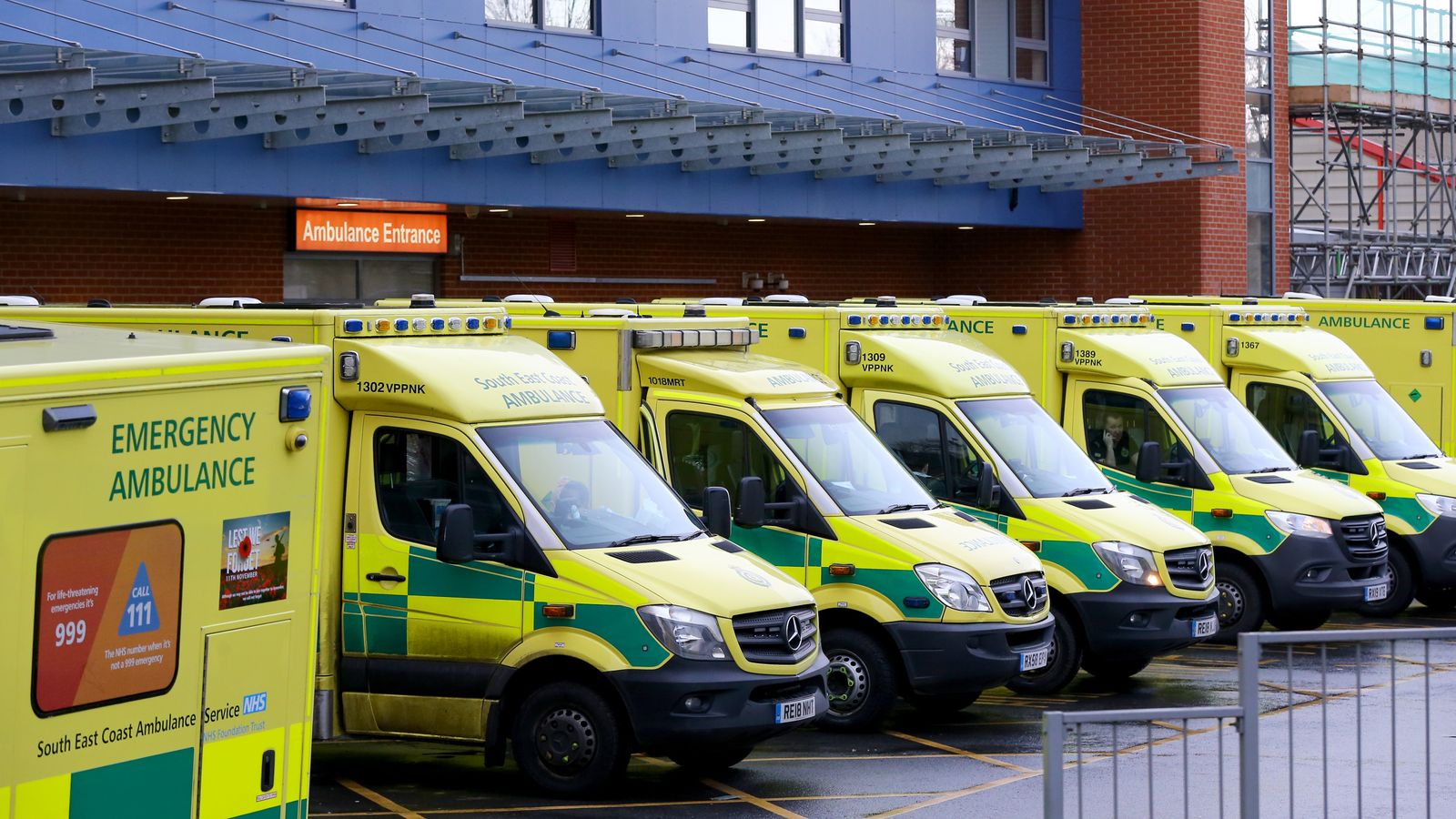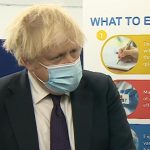The latest NHS figures for England show cause for “cautious optimism” in the state of the health service despite record breaking strike action.
Ambulances across England improved their response times, with the average wait in January for ambulances dealing with the most urgent incidents, such as cardiac arrest, to eight minutes and 30 seconds, down from 10 minutes and 57 seconds in December.
However. this remains well over the target standard response time for urgent incidents of seven minutes.
NHS tracker postcode search: See how your local trust is performing
The average response time to category 2 emergency calls such as heart attacks, strokes and sepsis was 32 minutes and six seconds in January, down from one hour, 32 minutes and 54 seconds in December.
Despite the marked improvement, the response time is still well above the target of 18 minutes.
Commenting on the figures, Tim Gardner, senior policy fellow at the Health Foundation, said: “Pressures are being felt right across the health and care system but are most acute in urgent and emergency care.
“Ambulance response times improved substantially in January 2023. A&E waiting times also rebounded from last month’s record low, although over 482,000 people still waited over four hours.
“While these are grounds for cautious optimism, performance is still well below where it should be and worse than before the pandemic.”
The number of 999 calls answered per day in January by ambulance services in England was also the lowest since March 2021.
Some 21,273 hospital operations were subject to last-minute cancellations from October to December 2022.
While this is up from 19,439 cancellations in July to September, the overall proportion of operations cancelled – 1% – is similar to levels both before and since the pandemic.
There were 23,503 operations cancelled in the last full quarter before the pandemic, from October to December 2019.
Just over a fifth – 21.6% – of patients who had operations cancelled in October to December 2022 were not treated within the next 28 days, largely unchanged from 21.3% in the previous quarter and down from 23.6% in April to June.
Meanwhile, the number of patients attending A&E departments in England fell in January amid strikes across the NHS.
A total of 2m people attended emergency departments in January, down from a record of 2.3m in December.
A&E attendances were also down on pre-pandemic levels, with 2.1m patients attending emergency departments in England in January 2020.
The number of people waiting more than 12 hours in A&E departments in England – from a decision to admit to actually being admitted – has dropped by more than a fifth in a month.
Who is taking industrial action in 2023 and when?
However, it was not all good news as 41,425 hospital appointments were rescheduled following strike action by ambulance workers and nurses on Monday and Tuesday.
The number of people in England waiting longer than six weeks for a key diagnostic test has also risen to its highest level since the summer of 2020.
Some 481,924 patients, 31.3% of the total, were waiting longer than six weeks for one of 15 standard tests in December, including an MRI scan, non-obstetric ultrasound or gastroscopy.
This is up from 427,968 the previous month, 26.9% of the total, and the highest number waiting longer than six weeks since July 2020 when the total was 489,797 (39.6%).
Read more
Nursing union leader calls on Sunak to intervene
Cancer cases to top 500,000 a year by 2040
Junior doctors ‘likely’ to go on strike next month
Please use Chrome browser for a more accessible video player
Danielle Jefferies, a policy analyst at the King’s Fund, said the ambulance response time improvement “appears to be thanks to lower numbers of 999 calls and swifter ambulance handovers at A&E departments, amongst other things”.
She added: “‘The unfortunate reality is that the road to recovery for the health and care system is long, with growing financial pressures, staffing shortages, and an NHS in crisis, all amounting to waiting lists being miles off where they should be under national targets.”
Sky News is running a year-long project – Can The NHS Survive? – with analysis from two of the UK’s leading health think tanks, The King’s Fund and The Health Foundation, to find solutions to the crisis gripping the NHS.
NHS national medical director, Professor Sir Stephen Powis said: “Today’s figures show that despite ongoing pressures across the health service, including industrial action, NHS staff are continuing to work flat-out to deliver the best care for patients, with ambulance response times improving last month as the NHS continued to progress on its winter plan.”






















